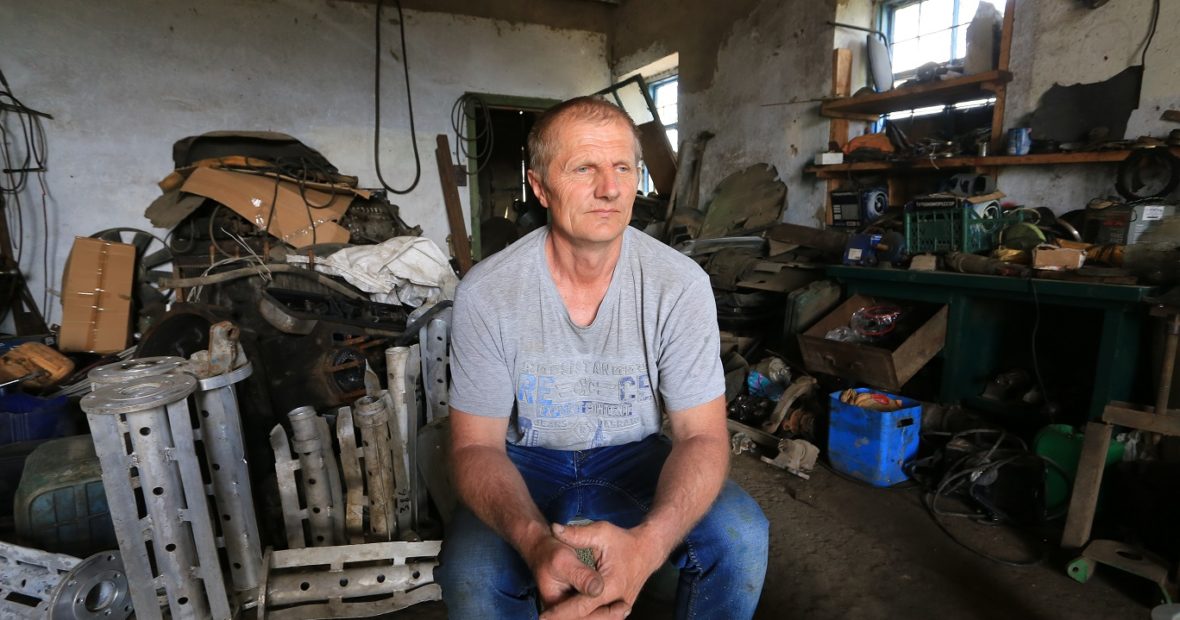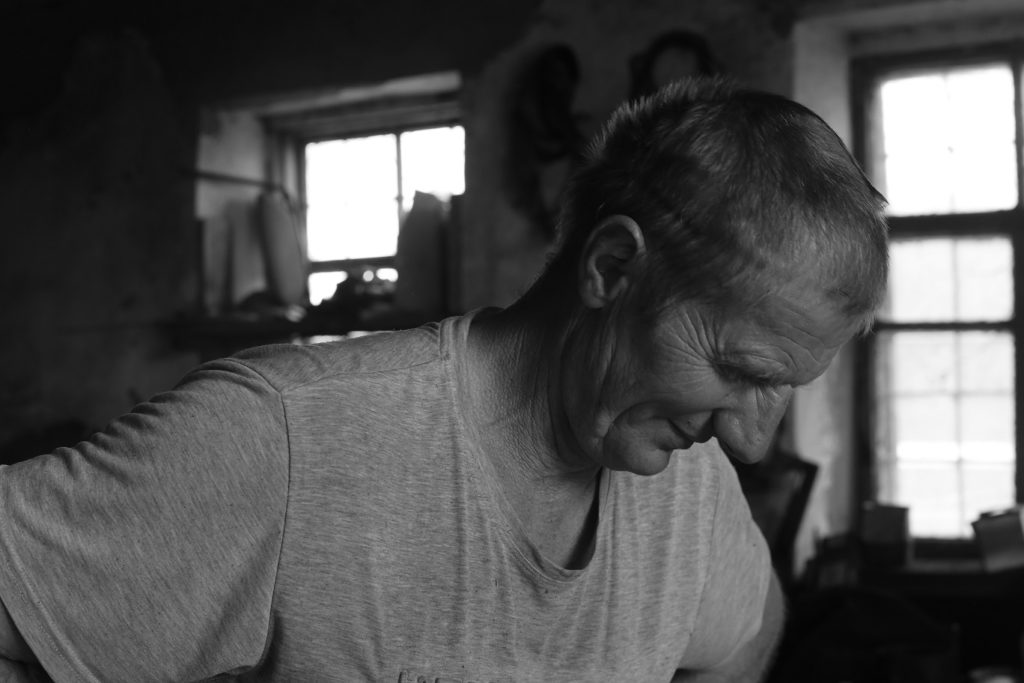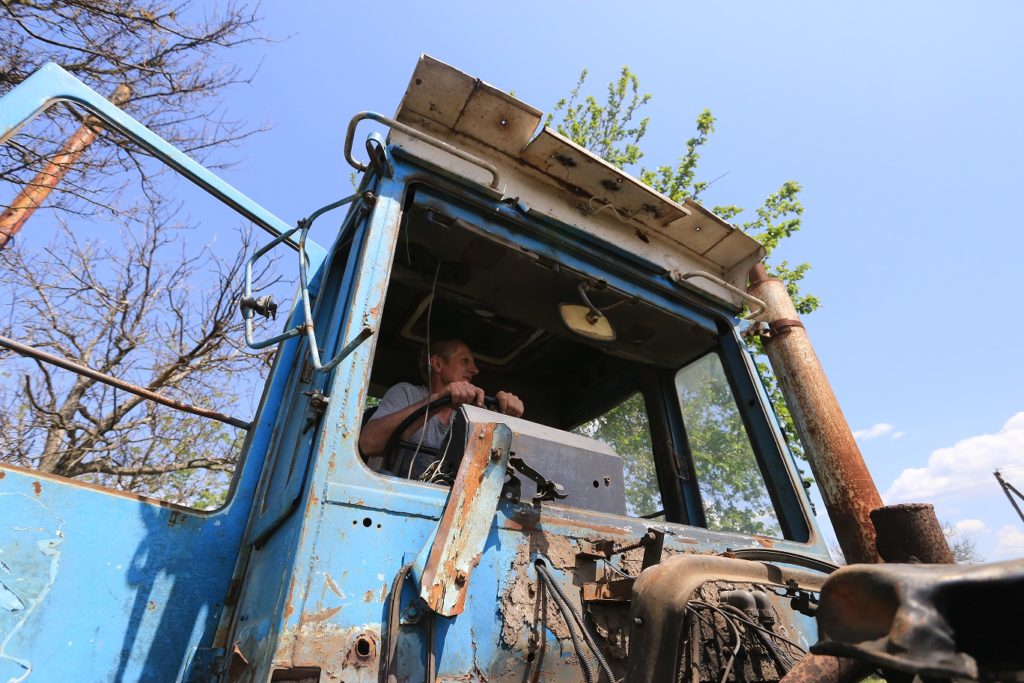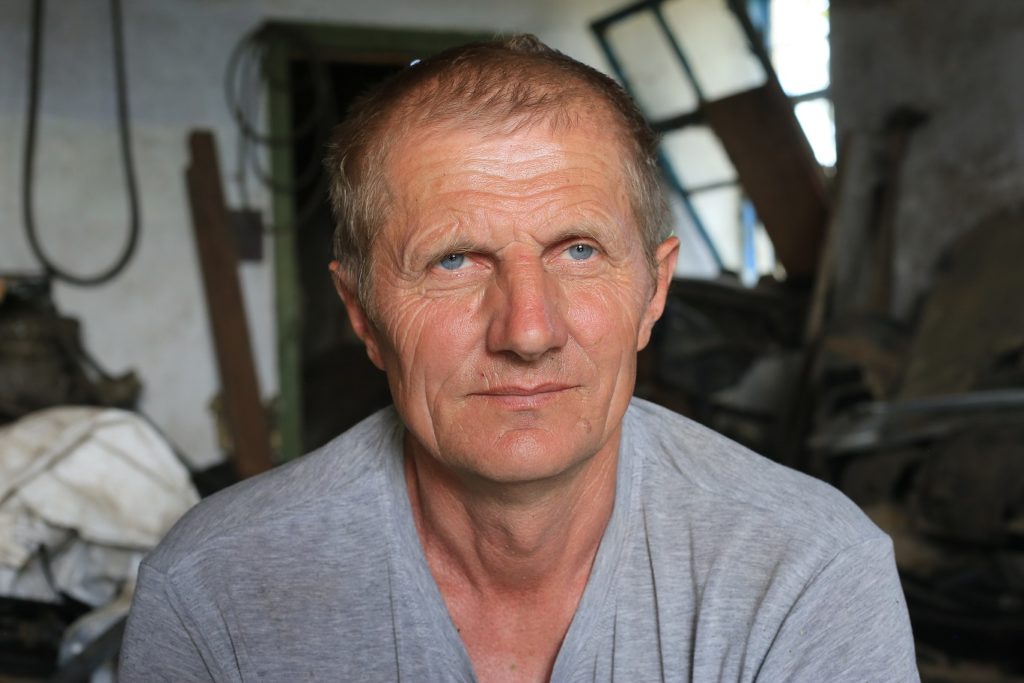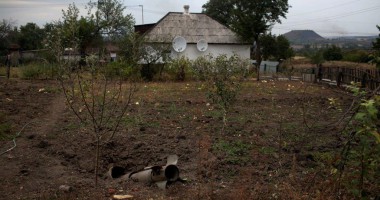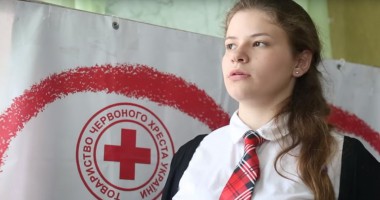“Fragments of metal could have killed me on the spot. It is a miracle I survived.”
Mykola is a farmer in the settlement of Pervomaiske, Mykolaiv region. He grows cereals, keeps cattle, and produces milk to sell at a market in Mykolaiv. Since the foundation of this settlement, more than 100 years ago, its residents have worked the land and grown wheat, barley, and other crops. Mykola followed this tradition, and his land plots are scattered all over Pervomaiske.
He has been a farmer for 15 years, managing his business together with his wife. They initially grew vegetables on just 0.5 hectares of land. Then they had a hectare, and then five… Over time, they switched to growing grain.
During the spring of 2023, Mykola set off to the fields, driving his tractor near a neighbouring village, a routine he had already performed twice that farming season without incident. As he approached another farmer’s vehicle parked by the roadside, he steered his tractor slightly to pass. Without warning, the tranquil scene was shattered by a powerful explosion, a sound that resonated all the way to Mykola’s own village, five kilometres away.
“It all happened so quickly, and I didn’t immediately realize what had occurred. I then looked to see if I was whole, because I realized I had run over a mine,” Mykola recalls, his voice tinged with disbelief. The memory lingers, the danger a stark contrast to the pastoral setting. “It’s a miracle I survived,” he remarks.
Explosive ordnance disposal (EOD) teams were working in a field nearby and arrived shortly. They registered the incident and were astonished to find it had not caused any serious consequences.
It turned out to have been an anti-tank mine. Later, another three were found there.
In the midst of the chaos, Mykola was curiously unaffected by the force of the explosion, escaping without even a hint of shellshock. His foot, however, was not so fortunate, having been broken in the incident. “The next day, I went to the hospital and was examined,” he recalls. “The doctor informed me that if I could minimise stress on my foot, a cast wouldn’t be necessary. But, working in agriculture, I can’t completely avoid physical strain. So, my foot is healing, albeit slowly,” he adds.
According to the Parliamentary Committee for Agriculture, more than 50,000 km2 of agricultural land in Ukraine cannot currently be used due to mines, contamination with explosive remnants of war or ongoing hostilities. In this locality, incidents like the one that happened to Mykola are many, and numerous people have been affected. A number of farmers from neighbouring villages have sustained injuries as a result of such incidents. For example, a tractor driver recently ran over a mine and lost one eye.
Recognizing the present threat of mines, Mykola took it upon himself to work all his fields, determined to shield others from the danger that lay hidden beneath the soil. His vigilance paid off when he spotted a cluster munition partially buried among his crops after having come to one field for the third time. The grim discovery was eerily reminiscent of a similar device recently found in his neighbour’s yard, which was then disarmed by an Explosive Ordnance Disposal (EOD) team.
However, the munition in Mykola’s field remains undisturbed, hidden away in a nearby forest belt. It serves as a stark symbol of a problem that stretches beyond his land. EOD teams, already stretched thin and struggling with limited capacity, are unable to deal with every explosive remnant of war that continues to threaten the daily lives of those seeking to live in peace on this land heavily affected by hostilities.
All his fields are contaminated with explosive weapons. Artillery shells used to lie in each of them. Risking their own lives, he and his colleagues took them to the edges of the fields.
It was scary, but “something must be done. You’ve got to continue working, growing grain,” says Mykola.
The Parliamentary Committee for Agriculture affirmed that “winter cereals have been sown over 4.5 million hectares vs 7.7 million ha last year. That directly impacts Ukraine’s food security. Therefore, today our priority goal is, with the help of international partners, to establish conditions for mine clearance on the land owned by small and medium agricultural businesses which are unable to do it on their own.”
A farmer’s work is impossible to imagine without a tractor. “I’ve worked all of my fields myself,” says Mykola. Due to the incident, his tractor was heavily damaged, and he has been restoring it gradually. But this requires time and money. He is grateful for the cash assistance received from the ICRC. The restoration is also delayed because a lot of agricultural activities have to be performed at the moment.
Many farmers have lost everything – equipment, warehouses, and cattle. Some villages have been razed to the ground. Some are not currently doing any agricultural work due to high contamination with explosive weapons.
However, without access to agricultural land, people have no source of income and cannot sustain themselves and their families. So, continuing agricultural activity is a vital necessity.
Some people have left for safer regions, but Mykola’s land and only source of income are here.
“This is where I belong,” he says. “At my age, it would be extremely hard to start my life from scratch.”
“Today, one has to survive in the countryside somehow.”
In the community where Mykola resides, the scars of international armed conflict are all too visible. Hostilities have not spared his property; the roof of one of his buildings was damaged, and a direct hit on his cattle pen killed five cows. Yet, amidst this destruction, Mykola considers himself fortunate. His house still stands, a solitary sentinel in a landscape where others have been reduced to living in sheds and summer kitchens upon returning to their ravaged village.
“We had no idea how well we lived before. It is much worse now,” other villagers lament, echoing a sentiment Mykola himself shares.
With a survivor’s determination, Mykola wants his story to serve as a warning. He replays the incident, grateful for his survival, acutely aware of how close he came to losing everything. “The fragments of metal during the explosion could have killed me on the spot,” he recalls with a shudder.
When Mykola delivers milk to the market and tells people his story, they say, “You saved someone else’s life. If anyone had run over that mine in a car, nothing would have been left of it.” And Mykola believes it is true.
Mykola is a farmer in Permovaisk, #Mykolaiv region.
The explosion of a landmine was absorbed by the big wheel of his tractor and saved his life. “It’s a miracle I survived”, he says.
10% of Ukraine's farmland is now contaminated with explosive hazards, making farming dangerous. pic.twitter.com/VpBUnV3dAn— ICRC Ukraine (@ICRC_ua) July 11, 2023

